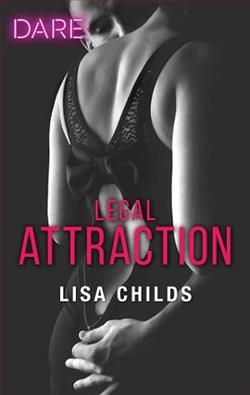Page 71 of Marry the Highland Villain
My mother loved my father, despite his temper, his occupation, and his flaws. She remained with him, and with us. She didnaehave to—nay one would have questioned it had she fled from him. But she stayed.
If she could love him and stay with him, then why did she tell me never to follow her example? Why would she do that? And what should I follow? My mother’s words or her actions?
She wished she could ask Lily, or Valerie, or even Megan, what they thought of the matter. But they were gone. She could write a letter, but that would take some time to reach her sisters, and the reply would take even longer. She wasn’t sure she could bear to wait that long.
She wished she dared send a messenger asking them to come back, but she wasn’t sure they would do so, even if Conall agreed to let them. Her sisters were cautious—far more than she was—and the manner in which Oliver had banished them from the castle would stay in their minds for a long time to come. They’d want assurances of their safety if they were to consider coming back, and Brigid was in no position to give them that.
They needed an apology as well, from Conall and Oliver, but Brigid had no idea if either of the MacKane men would write such a letter. Her father never would have, even if he’d been in the wrong. Would Conall be the same?
The conundrum occupied her mind for the rest of the day. Brigid ate her meals in her rooms, after a maidservant brought them up with Emily’s instructions to eat something, lest she make herself ill. She slept some more, read a little, and spent most of her time looking out her window at the gardens.
More than once, she considered going to Conall to speak to him, but she couldn’t quite bring herself to do so. Her feelings were tangled like a ball of yarn a kitten had played with, and she didn’t want to cause either of them more pain by speaking the wrong words.
That evening, she wrote a letter to her sisters and gave it to the maidservant who came with her evening meal to give to a messenger. In it, she told them she was all safe, and that matters between herself and Oliver had been resolved. She also told them that Laird Auchter was dead—and by her husband’s hand.
Brigid went to bed that night and woke up the next morning missing Conall’s warmth as fiercely as she had the morning after her wedding.
It was almost absurd that she was in this position. They were in the same castle, after all. They walked the same halls and breathed the same air, and yet she felt as if there were an ocean between them—some vast and impassable gulf that she had no idea how to bridge.
The second day she spent going through the bags and cases of her things that her sisters had brought with them. She’d had little inclination to touch them until now, but she took some comfort in rediscovering the dresses Valerie had sewed for her, and the medicines Lily had made—including the scented headache remedy she loved the most—and the leather goods Megan had crafted for her, including her sturdy winter boots.
At the very bottom of the case, she found her journals. Brigid lifted them, running her hands over the spines.
Her father had brought home the first few, for her mother. Her mother had shared them with her when she’d first shown an interest in drawing and writing—an interest her sisters didn’t share outside of Lily’s interest in noting plants, and Valerie’s occasional drawings and patterns for clothing. But the last few journals, the ones she’d had after father and mother had died had been far harder to come by.
Valerie had bargained for the paper. Megan had shaped, tooled, and stitched the hide for the bindings. And Lily had trimmed the paper. A new book of blank pages for every year, given to her on her birthday, and another for a Yuletide gift.
Inside, there were drawings of flowers, sketches of family and woodland scenes, and pages of stories and dreams. And her favorite, the parts she cherished—even if looking at them made her blush—were the poems she’d written.
Pages upon pages of her attempts at poetry. The ones from her childhood were faltering, clumsy poems, childish and silly. They changed as she grew older, but she’d never stopped writing them. It had become a habit she knew she would never break—a way for her to make sense of the world and her own tangled emotions.
Brigid’s fingers caressed the blank page at the end of her latest journal. So much had happened, and she’d never had any chance to write about it. She’d never been willing to ask for paper andink, afraid someone would accuse her of treachery, as Oliver so often had.
But Laird Auchter was dead. And she was Conall’s wife, Lady MacKane—even if she’d never felt less like a lady of anything. She’d purchased all those lovely inks, writing implements, and drawing tools at the market on that day that now felt like a lifetime ago. What better use for them than to sort out the tangled thoughts that troubled her so?
Perhaps, just perhaps, if she could write everything down, she could make sense of herself again, the way she’d always been able to in the past? Writing and reading had often helped her understand things, just as walking in the woods—or the gardens—had helped soothe her mind.
Brigid ran her hand over the pristine page once more, then stood and set the journal on her table. She collected the rest of the books to place next to her bed, then went to the door and called for a servant to ask for a glass of warm milk and some extra candles for her desk.
CHAPTER 25
The first dayafter Laird Auchter’s death was busy enough that Conall could focus on matters other than his relationship with Brigid. With letters to write, papers to sign, and clan business to deal with, there was plenty to occupy his mind.
He and Oliver spoke that night, exchanging words, and sometimes shouting, over a bottle of spirits. Conall awoke on the second morning with a pounding head and a sour gut, but it was worth it to see the way Oliver smiled at him, ever so slightly, over the midday meal.
Brigid was absent from the table for every meal that was served. One of the scullery maids reported that she was having her meals sent up to her rooms and had refused to leave them, claiming she was unwell. Conall was tempted to go and knock on her door to be sure she was all right, but he restrained himself. He had promised, after all.
Instead, he sought out Emily and told her what the scullery maid had said. “Ye’ll make sure she’s hale?”
“Aye.” Emily nodded. “But I think yer lady is simply takin’ the time she needs to think and sort out her feelings. Best nae to rush her with that, Conall.”
“Even so…” Conall scowled down the hall. “I dinnae want her to be ill or injured, and unwilling to tell ye because of me.”
“Dinnae fret. I’ll make sure yer lady is well.” Emily patted him reassuringly on the arm, and Conall forced himself to accept her word and return to his business.
The following morning, one of the guards told him that Brigid had written to her sisters and sent the note with a messenger, who’d returned that morning. Conall took the report and sent the man on his way, hoping that whatever Brigid had written, and whatever her sisters might have written in reply, would be enough to bring her back to him.
The following day, he spent two hours pummeling a training dummy. Brigid was still hiding in her rooms, and he’d never wanted anything more than he wanted to pound his way through the door and demand to see her. Except, perhaps, for Devon to still be alive.















